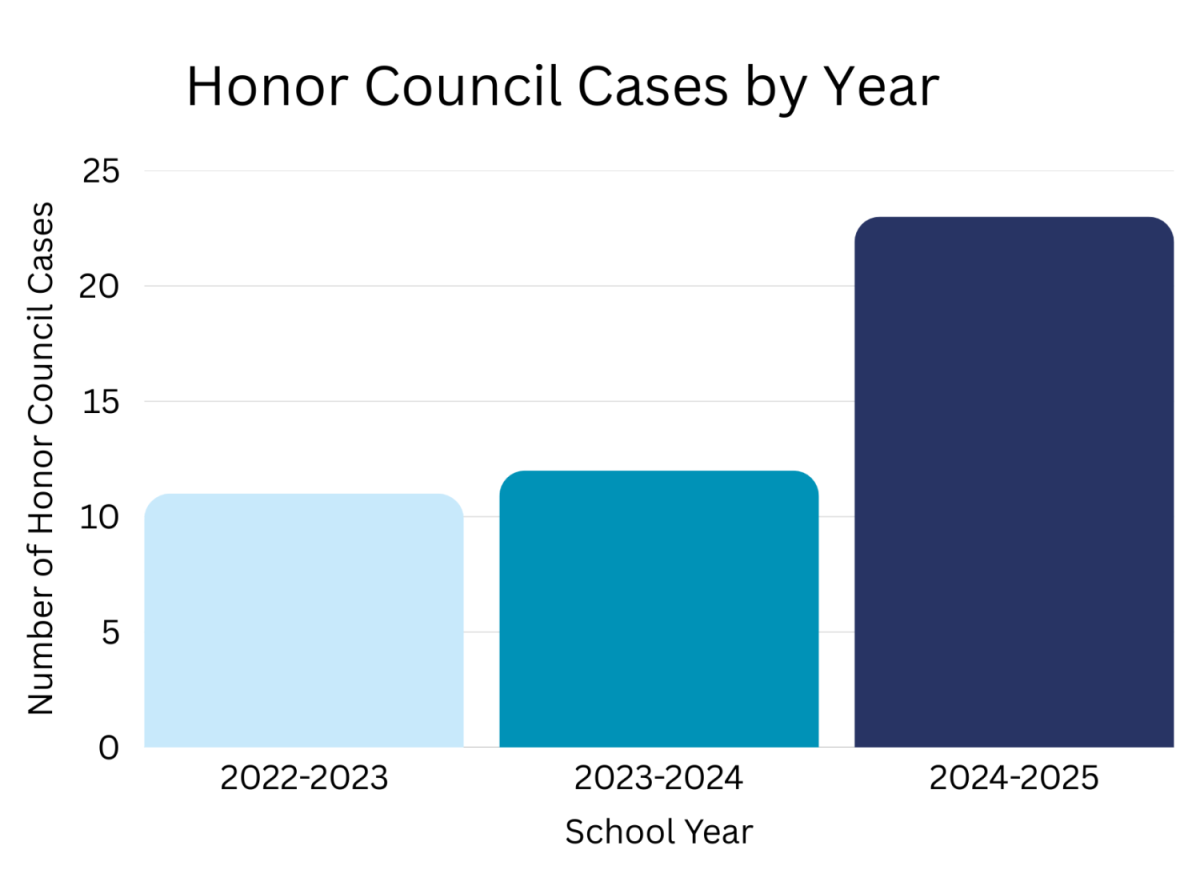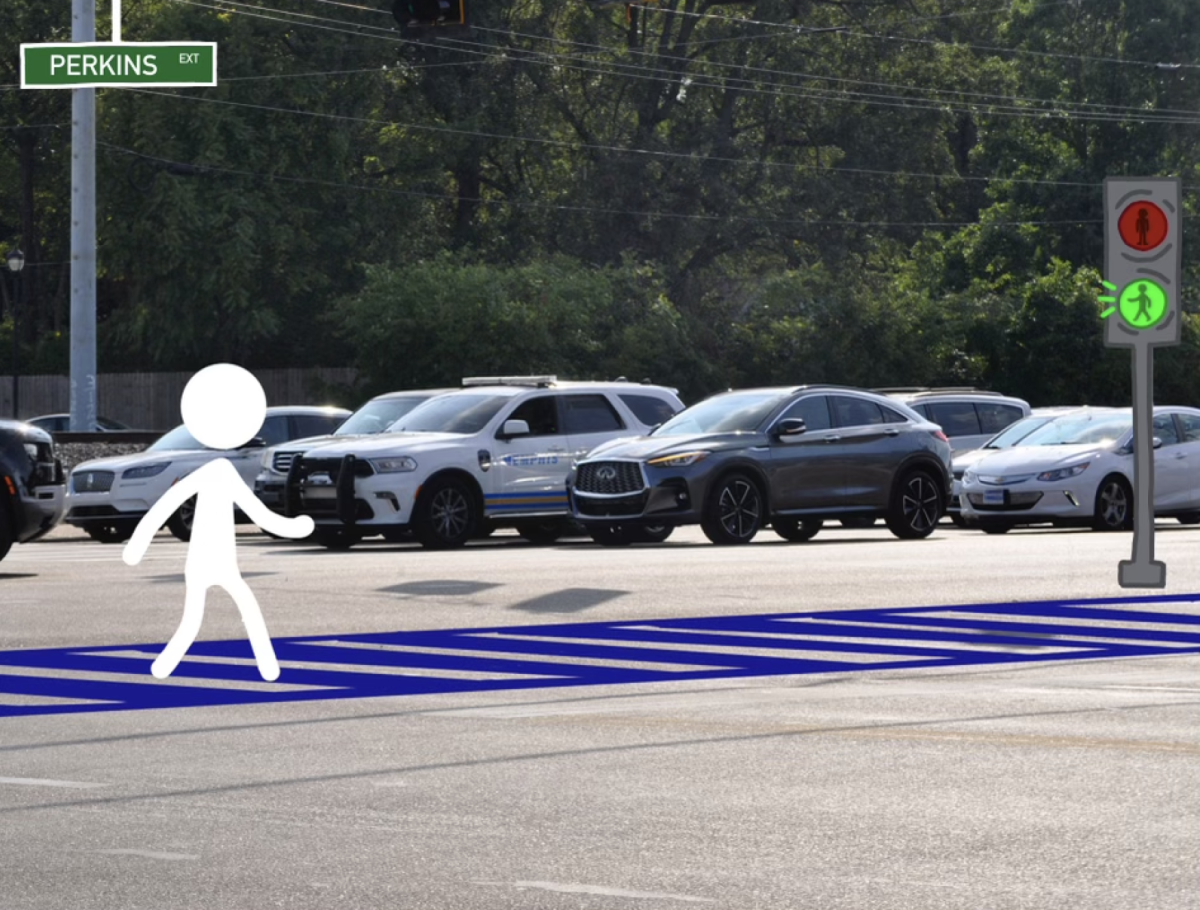Four years from now the vast majority of current upper school students at St. Mary’s will be 18 years old, most will be enrolled in college, and consequently, many will be living somewhere that is not Memphis, Tenn. Those of us who leave Memphis in the next four years will have to make a choice: we must decide between voting where we went to high school or where we are attending college.
National voting laws allow college students to choose where they will cast their votes. They can vote in person in their college town or cast an absentee ballot in their hometown (presuming that they continue to have a permanent address there).
But making that choice means asking yourself a lot of questions. Where is your community? Do you care more about federal or state and local elections? What issues do you care most about? Is your college town in a swing state that will affect the electoral college? Where will you have the most impact?
During the years that we are in college, there will be local, state, midterm and primary elections in addition to another presidential election in 2028. Each of these is an opportunity for us to exercise our right to vote if we are eligible.
Historically, there is low voter turnout for people ages 18 to 29. Less than half of eligible youth show up to the polls, unlike older voters who have the highest voter turnout. Younger voters also tend to differ from older voters on the issues they care about most. According to a poll conducted by researchers at Tufts University, young voters care most about the economy, climate change and guns in the 2024 election.
Because presidential elections are decided not by popular vote, but by the electoral college, a vote in a swing state can potentially have more of an impact. In the vast majority of states, electors cast ballots on behalf of their constituents for whoever wins the popular vote in their state. In short, this is a “winner takes all” system. Most states are solidly Republican or Democrat, and a vote cast there is not likely to change the outcome due to the electoral college. But in a few “swing” states, where it is closer to 50-50, individual voters have a larger influence on the election.
So let’s say the college you choose is in a swing state. Should you vote in a place where you don’t permanently live?
If you leave the Memphis area for college, then you are joining a new community, but one you may only live in for around eight or nine months out of the year. College students also might not know the community as well as permanent residents, who may be more invested in that particular area.
Is it fair to cast a vote there?
Our answer is yes, vote where you can maximize your impact.
Because we come from Tennessee, a state where federal elections are not competitive, voting in another state — specifically a swing state — can increase our impact on the huge elections that will determine the course of our nation’s future.
How do you go about it?
Depending on the state, there are different voting requirements, which can complicate the process for college students. Some states, like North Carolina and Pennsylvania, allow students to use their student IDs to vote, but others, like Arizona, do not. If you want to vote there, you’ll need to have an approved state or federal ID and in some cases other supporting documents. Colleges often have student organizations that help students register to vote wherever they choose, but some states have more complicated processes than others.
But, what if you move to a state that also has noncompetitive federal elections, like, say, Mississippi or Louisiana?
Then we say vote where you are from. You already know this community and have connections and interests here. Also, it’s generally a bit easier to request an absentee ballot here than to change your registration to your new state.
If you plan to vote absentee in your first Tennessee election, there is one thing you should know that is surprisingly hard to figure out. It took an unhelpful Google search, emails to the Tennessee Secretary of State’s office and a contact within Shelby County’s election commission to understand the specific laws that govern first-time voters who are voting absentee.
As a Tennessee voter, if you register to vote online or by mail, you must vote in person for your first election, not absentee. However, if you register in person, then you are eligible to absentee vote if you meet the other requirements — one of which is being a college student attending school outside your county.
In short, try to register in person. If you register online or by mail and want to vote absentee in your first election, you’ll need to go to the Election Commission office either in your current county or your college town county and bring your ID to prove your identity.
But this process only applies if you want to vote absentee in Tennessee.
Where you vote is up to you, but the most important thing is to get out there and vote. Women fought hard for the 19th Amendment, so let’s head to the polls.































![[GALLERY] Walking in (Downtown) Memphis](https://stmarystatler.org/wp-content/uploads/2024/04/E1DAD3FE-E2CE-486F-8D1D-33D687B1613F_1_105_c.jpeg)


















Mollie • Nov 5, 2024 at 4:51 pm
Such an informative article!
A Throckmorton • Nov 4, 2024 at 12:59 pm
Your reporting is outstanding!